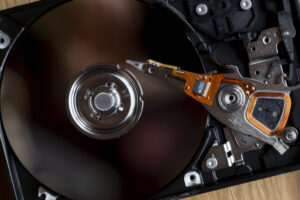The Growing Importance of Corporate Electronic Asset Recycling
In the digital age, businesses accumulate vast amounts of electronic equipment. From outdated computers and broken printers to retired servers and obsolete network switches, corporate environments are overflowing with aging technology. Without a proper plan in place, these devices can end up in landfills, causing environmental harm and posing security risks. This is where corporate electronic asset recycling steps in as a vital strategy for responsible and sustainable business operations.
Why Businesses Can No Longer Ignore E-Waste
Corporate e-waste is a rapidly expanding issue. According to global estimates, over 50 million metric tons of electronic waste are generated annually, and this number is projected to rise. Much of this comes from businesses upgrading infrastructure or shifting to newer tech. Improper disposal of these items results not only in environmental degradation but also in a lost opportunity to recover resources.
Environmental Responsibility
Electronic devices often contain hazardous substances such as lead, mercury, and cadmium. When improperly discarded, these toxins can seep into the soil and contaminate water sources, posing long-term ecological and health risks. Corporate electronic asset recycling ensures these materials are processed in licensed facilities, safeguarding the environment.
Data Security Concerns
Every hard drive, flash drive, or server holds potential data vulnerabilities. Simply tossing old equipment without proper data destruction can lead to breaches, exposing sensitive corporate and customer information. Engaging in secure IT asset disposal, including certified data destruction, is essential for protecting your brand and your clients.
Key Benefits of Corporate Electronic Asset Recycling
1. Compliance with Regulatory Standards
Businesses are under increasing scrutiny to follow environmental and data protection laws. Proper recycling of IT assets helps companies align with legal expectations and avoid penalties.
2. Corporate Social Responsibility (CSR)
Today’s consumers and partners favor environmentally responsible companies. A robust e-waste management program enhances your CSR profile and strengthens stakeholder trust.
3. Resource Recovery
Electronic devices contain metals such as copper, aluminum, and plastic.. Recycling helps recover these materials, reducing the need for harmful mining and supporting a more sustainable supply chain.
4. Space Optimization
Old electronics can clutter office spaces and storage rooms. Recycling clears these areas, promoting a cleaner and more efficient workplace.
The Corporate Recycling Process Explained
To understand how corporate electronic asset recycling works, here’s a breakdown of a typical process:
Assessment and Inventory
The process starts with a rough inventory of electronic assets. This includes documenting the type, quantity, and condition of each item.
Secure Transportation
Licensed recyclers like EACR Inc. provide secure logistics solutions to transport electronic devices from your business premises to recycling facilities.
Data Destruction
Before recycling, all devices undergo rigorous data destruction procedures. This may include degaussing, shredding, or software-based wiping to ensure complete data removal.
Material Recovery
Devices are dismantled, and components are sorted for reuse or recycling. Metals, plastics, and other materials are processed for future manufacturing.
Documentation and Reporting
Businesses receive detailed reports and certificates of recycling and data destruction, supporting transparency and audit-readiness.
Best Practices for Businesses
Partner with Licensed Recyclers
Choose a recycler with a strong reputation and relevant licenses. EACR Inc., for example, follows rigorous processes to ensure safety, security, and sustainability.
Implement an Internal Asset Management Policy
Track the lifecycle of electronic devices from procurement to disposal. Establish clear protocols for recycling, including responsible handling and secure data disposal.
Educate Your Team
Ensure all employees are informed about your company’s recycling policies and why proper disposal is essential.
Schedule Regular Disposal Days
Set up quarterly or annual e-waste collection days to prevent accumulation and ensure consistent recycling practices.
Industry-Specific Considerations
Different sectors have unique e-waste challenges. In the healthcare sector, there is a need to ensure HIPAA-compliant data destruction of devices containing patient information. Financial institutions require secure asset disposal to prevent leaks of sensitive financial data. Educational organizations often handle large volumes of devices across multiple campuses, requiring coordinated recycling strategies. Retail and logistics industries need solutions for a mix of mobile, stationary, and back-office tech.
Why Choose EACR Inc. for Corporate Electronic Asset Recycling
EACR Inc. offers tailored recycling solutions that meet the diverse needs of modern businesses. With over two decades of experience, our team ensures your retirement assets are handled securely, sustainably, and efficiently. From data destruction to logistics and documentation, we take care of every detail so you can focus on your business.
By working with EACR Inc., you’re not only protecting your data and environment but also contributing to a circular economy where resources are reused rather than wasted.
Final Thoughts
Corporate electronic asset recycling is no longer optional. It’s a fundamental aspect of modern business operations. By embracing responsible IT asset disposal practices, companies can reduce risk, improve sustainability, and lead by example in their industries. Partnering with experts like EACR Inc. ensures the process is seamless, compliant, and environmentally sound.
Take control of your company’s e-waste strategy today. Reach out to EACR Inc. to start building a recycling plan tailored to your needs.





